All ocean forecasting systems have in common their dependence on reliable ocean observations and state-of-the-art ocean modelling components, together with the human expertise and operational processes to design, develop and operate such systems. Marine services based on OOFS are consequently critically dependent on the considerable investments required to develop upstream research for capacity building and large infrastructures such as satellites, marine observation networks and super-computers. Such massive investments are not affordable at the scale of one entity or one nation, and international cooperation is the only framework able to ensure a sustainable effort in this matter and build this indispensable framework for the OOFS worldwide community.
We like changes
The “butterfly diagram” (Figure 2.1) illustrates the position of ocean forecasting in the overall value chain, bridging ocean observations with end-users (Bahurel et al., 2010). Ocean forecasting is present on the two steps signed with gears on the figure. On one hand, at the so-called “core services”, where its mission consists in integrating the richness and variety of ocean observations to build a state-of-the-art description of the ocean environment, multi-variable, consistent in space and time, reliable, and immediately actionable by expert services in their own fields of expertise. On a second step, intermediate users can use this freely available description to enrich the data via model downscaling and, finally, generate tailored information and indicators for decision making. This is done via a large variety of downstream services, such as storm surge forecast warning systems or water quality monitoring services.

The left wing of this butterfly (Marine Core Service) also illustrates the OOFS ‘common’ – i.e., the assets developed through international cooperation and shared by the OOFS community as a common good – that the GODAE initiative has invented two decades ago, and that international cooperation has developed through different channels.
This OOFS ‘common’ includes:
- Data: Ocean observations measured from space by satellites, and in situ by vessels and autonomous networks as well as different forcings or coupling with atmosphere and river run-off required to run OOFS systems. International cooperation has not only organised and simplified the access to these data worldwide, but also has strengthened the voice of the OOFS community for a sustained observation effort.
- Tools: Operational tools used to generate a reliable 4-dimensional description of the ocean environment and operate ocean forecasting systems include models, data assimilation systems and product generation software. Full-fledge integrated systems and their parameterization are specific to their purpose, location, and operating team but they are composed of individual bricks (e.g., NEMO -Nucleus for European Modelling of the Ocean- modelling tool) that are frequently shared to feed the OOFS common.
- Standards: data sharing or product validation are driven by expert processes and standards to reach efficiency to interoperability. One of the best examples is the adoption of common data formats to facilitate exchanges. The international community work started with GODAE in the field of product validation with the definition of common protocols (“metrics”) now widely adopted by OOF centres worldwide.
- Products: together with input data entering OOFS, the output products generated by these systems (ocean forecasts, ocean simulations, ocean indicators, …) are widely shared to feed a common set, facilitating intercomparison and individual systems improvements.
- Know-how: the outcomes of research undertaken by scientists in the OOFS fields are of course a key asset for the community worldwide, and the scientific community has proposed in this matter fruitful models of cooperation; this common knowledge has been extending its scope with the development of OOFS through the sharing of best practices in the domain of system operations, market development and user uptake.
This is at the heart of international cooperation and its content is in constant evolution. It reveals the strength and the dynamism of the OOFS community: we are prepared to see in the coming years a bloom of innovation to support OOFS development in the coastal zones, marine biodiversity, polar areas, climate adaptation, all integrated in the new paradigm offered by digital twinning.


Follow us